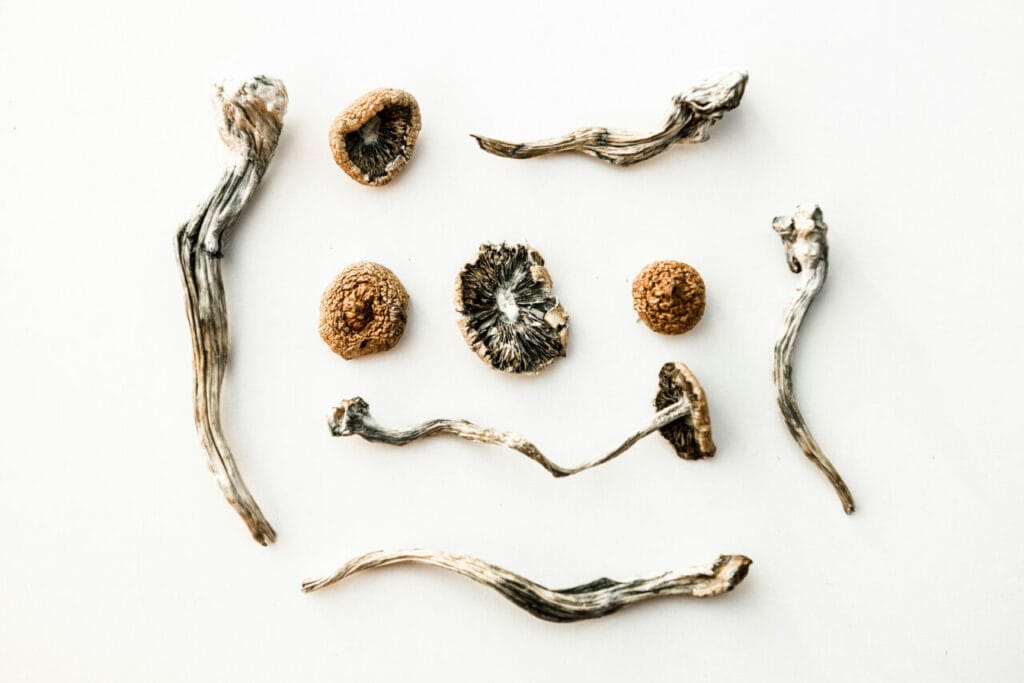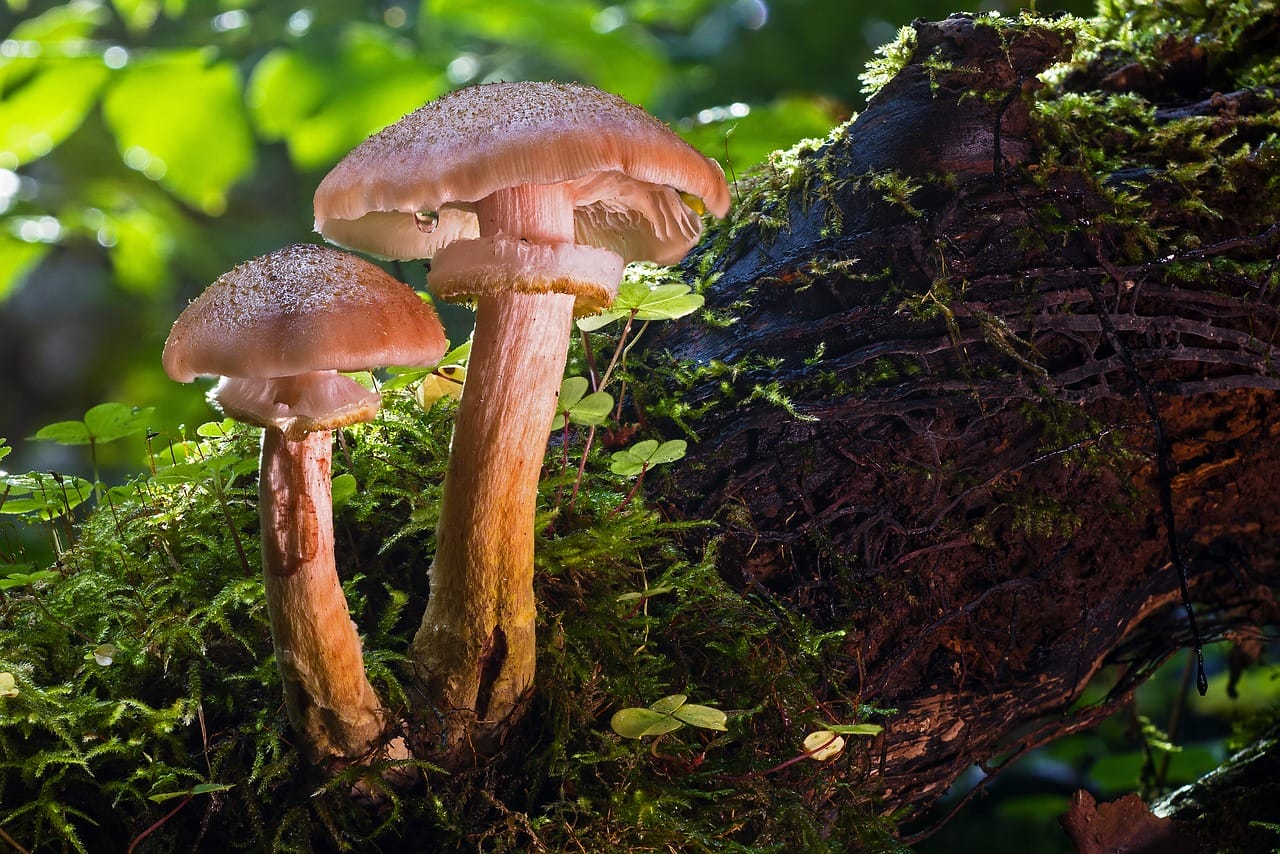Originally, magic mushrooms were seen by many Canadians as a psychedelic substance used primarily for recreation. However, upon closer examination of its active ingredient, psilocybin, scientists have found it to be a powerful tool in the treatment of a range of mental health issues.
As more information comes to light, our comprehension of the uses of psilocybin expands. This increased knowledge makes it easier for individuals to access these products via magic mushroom delivery services. A recent study has drawn attention to its impact on human consciousness. Could this be the reason for its profound effects on the human mind? Let’s dive deeper into this fascinating investigation of magic mushroom products.
Key Points:
- The cognitive function of early humans was positively influenced by psychedelic magic mushrooms, contributing to their survival.
- Mushrooms play a substantial role in neurological health due to their capacity to mitigate PTSD, depression, and anxiety.
- The influence of psilocybin on consciousness and brain activity could have boosted creativity, self-reflection, and abstract thinking.

The Historical Use and Importance of Magic Mushrooms
Historical evidence proposes that our ancestors have utilized the power of psychedelic magic mushrooms since ancient eras. Indigenous societies incorporated them into sacred rituals and traditional ceremonies as a way to honor their gods. They flourish worldwide, especially in subtropical and tropical areas, which encompass South and Central America, the Caribbean, Southeast Asia, and Africa.
The Function of Shrooms in Ancient Civilizations
Indigenous people of Mexico have used these fungi for spiritual insights, divine connection, and religious ceremonies since the olden days. The Aztec Indians of South America referred to it as the “Flesh of the Gods” and incorporated it into healing rituals.
Archaeological evidence points towards usage as far back as:
- 10,000 years ago in Australia
- 7,000 years ago in North Africa
- 6,000 years ago in Spain.
These findings are often brought up by scholars as evidence of the widespread historical use of psilocybin. Upon consuming mushrooms, individuals would experience an intense sense of joy, their hallucinations marked by complex geometric and visual patterns.
Mushrooms in the Context of Spain’s Bronze Age History
During the mid-1990s, scientists discovered remnants, especially hair strands from approximately 200 Bronze Age societies, hidden within a cave in Minorca, Spain. The artifacts were remarkably well-preserved, due to the cave’s entrance being sealed off by fallen debris. Upon analysis, it was found that these hair samples contained traces of three alkaloids, compounds known for their ability to alter the human mind and induce changed states of consciousness.
These findings provide a fascinating glimpse into why and how ancient societies used these substances. Surprisingly, reaching a state of high was rather common during those times. However, the question that still lingers is, what effect did these substances have on human evolution?
Psilocybin and the “Big Bang Theory” of Human Evolution
In recent years, a renewed interest in psychedelic research has strengthened the theory that psychedelics had a part to play in the evolution of consciousness. This idea, referred to as the stoned ape theory, was proposed by ethnobotanist Terence McKenna. The theory posits that the ingestion of psychedelics might have influenced the cognitive and cultural evolution of humans.
According to Dr. Thomas Falk, a professor of Philosophy and Education at the University of Dayton, this theory could potentially elucidate the so-called “creative explosion” that took place among Homo sapiens approximately 40,000 years ago, signifying a crucial leap in early human cognitive capabilities.
It is theorized that psychedelics allowed early humans to live in self-created worlds. Over time, their enhanced cognitive abilities allowed them to replicate these experiences in their physical environments.
In his book “Food of the Gods“, Terence McKenna laid out his arguments that the stoned ape hypothesis has its origins in ancient shamanistic practices and a speculated range of plants and fungi.
“Potential to Cause Neurological and Psychological Transformations”
Psychoactive substances possess the potential to initiate deep-seated neurological and psychological transformations. These changes could have played a crucial role in our species’ evolution.
The study, which integrates biology, ethnobotany, and neuroscience, meticulously examines the existing research on psilocybin and human consciousness. The theory suggests that early humans who began consuming these fungi, as their habitat shifted from forests to grasslands, experienced increased exposure to animal dung, which in turn increased their fungal intake. The study cites the “stoned ape” hypothesis, which proposes that this dietary change could have incited significant brain alterations in early hominids.
Effects of Consuming Psychoactive Substances
Potential benefits of consuming these fungi could include enhanced hunting and scavenging skills, increased sexual drive, and heightened sensory awareness. Coupled with the impact of psilocybin on consciousness and brain function, these factors could have potentially fostered creativity, introspection, and abstract thought, which are integral to the development of language.
The Peruvian scientists who led the study emphasize the need for continued exploration of the effects of these substances on the brain and human evolution. While it has shaped brain regions associated with memory, decision-making, and introspection, the evolutionary implications remain an ongoing subject of research.
An unrelated genetic study indicates that magic mushrooms emerged around 67 million years ago. Human consumption of these fungi began millions of years ago, predating the usage of marijuana.
What are Dried Magic Mushrooms?
These mushrooms contain a hallucinogenic substance called psilocybin. The effects can vary depending on individual tolerance, body weight, and intake method. Here are some expected effects:
- Profound joy
- Feeling of tranquility
- Introspection and spiritual enlightenment
- A dreamy sensation of being disconnected from physical reality
- Visual alterations, such as seeing light halos and vivid colors
- Enhanced feeling of well-being
Despite its recreational use, many people employ it for its medicinal properties, particularly for its positive effects on brain health.
Influence on Neurological Health
The active ingredient alters mood, perception, and cognition by engaging with serotonin receptors in the prefrontal cortex. The enhanced cognitive abilities, including the manipulation of visual and auditory experiences, intensify the way one performs tasks.
Connection to Historical Roots
Our early ancestors, often referred to as the stoned apes, employed the same principle. Their exploration and use of these fungi, particularly during their ecological transition from forest to grassland habitats, resulted in increased exposure to animal feces, consequently escalating their intake of these mushrooms. The “stoned ape” theory, cited in the study, suggests that this dietary shift could have initiated significant changes in the brain structures of early hominids.
The intake of psilocybin mushrooms might have influenced the evolution of their consciousness and cognitive capabilities. This might provide insights into how they developed crucial survival skills.Present and Future Interactions
Recent research has discovered that individuals who suffer from cluster headaches, anxiety, anorexia, obsessive-compulsive disorder, PTSD, and depression typically exhibit low serotonin levels. Although selective serotonin reuptake inhibitors (SSRIs) are the standard treatment, they often require a significant amount of time to demonstrate improvement. Conversely, shrooms can bring about immediate alterations in brain neuron connectivity.
Modern Psychedelic Research – Clinical Trials
Since the early 2000s, scientists have been exploring innovative treatments customized to individual patient requirements for various psychiatric and behavioural disorders.
Owing to its capacity to infiltrate the central nervous system and boost cognitive function, it has been proven effective in therapy. Advancements in research in 2020 suggest that psychedelic therapy using psilocybin products mitigates severe depression.
As expressed by Matthew Johnson, a professor at Johns Hopkins Medicine, these substances alter the manner in which different brain systems communicate. An increase in connectivity between brain regions that typically don’t interact effectively is apparent. Conversely, areas that usually communicate extensively display reduced interaction.
This induced disorder is not merely a side effect but possesses potential therapeutic value. Depressed individuals often find themselves trapped in self-critical, repetitive thought cycles that worsen their condition. Psychedelics disrupt these patterns, facilitating individuals to escape from their deeply rooted negativity during a psychedelic experience. This leads to more flexible thinking and the capability to handle critical
Purchasing Magic Mushrooms Online: Your Gateway to Wellness
An array of these regulated substances is available for purchase online. Select from a range of safe and lab-verified options, mitigating the risk of unintentionally buying toxic mushrooms. Reliable vendors ensure the safety and quality of the products they offer.
| Product | Psilocybin Content | Psilocin Content | Benefits |
| Enigma | 0.76% | 0.07% | Enhances Focus, Provides Uplifting Effects |
| Atlantic Treasure Coast | 0.59% | 0.08% | Boosts Concentration, Stimulates Creativity, Fosters Neuroplasticity |
| Blue Magnolia | 0.58% | 0.08% | Enhances Memory, Assists in Fighting Depression and Anxiety |
| Cambodian | 0.45% | 0.06% | Supports in Treating PTSD and Anxiety, Aids Substance Abuse Recovery, Improves Mood |
Uncovering the Hidden Potential of Magic Mushrooms
All current progress, including civilizations, urbanizations, and societies, are the outcomes of various advancements. Even if the stoned-ape hypothesis is merely a theoretical conversation, scientific discoveries are increasingly revealing evidence supporting the significant role of psilocybin in human evolution.
If you’re in pursuit of enhanced cognitive development, Get Magic Mushrooms Canada is your ultimate destination for magic mushroom delivery. We offer a vast selection of top-tier shrooms from A to Z, with fast delivery available in British Columbia and further afield.
Discover the future of personal growth — peruse our assortment of high-quality psychedelics available online in Canada today.
Commonly Asked Questions
What type of shrooms did ancient civilizations consume?
Diverse varieties of fungi are found worldwide, hence there isn’t a single type consumed by all societies. Some favored the well-known liberty caps, while others preferred Psilocybe cubensis. Most of them either consumed these mushrooms raw or created edible forms like tea blends.
What is the role of psychedelics in contemporary human development?
Presently, psychedelics primarily function by activating the 5-HT2A receptor subtype. This engagement has proven effective in handling stress-associated disorders and notably affects creativity and social behavior. Such effects can enhance adaptability and fitness, especially in societies where knowledge and social interdependence are paramount.
Did human evolution benefit from spiritual practices involving shrooms?
Indeed, human evolution was influenced by spiritual practices that incorporated shrooms, shaping cultural, religious, and social frameworks. These practices foster a deep sense of unity, imagination, and communal bonding.
Articles You Might Find Interesting:





